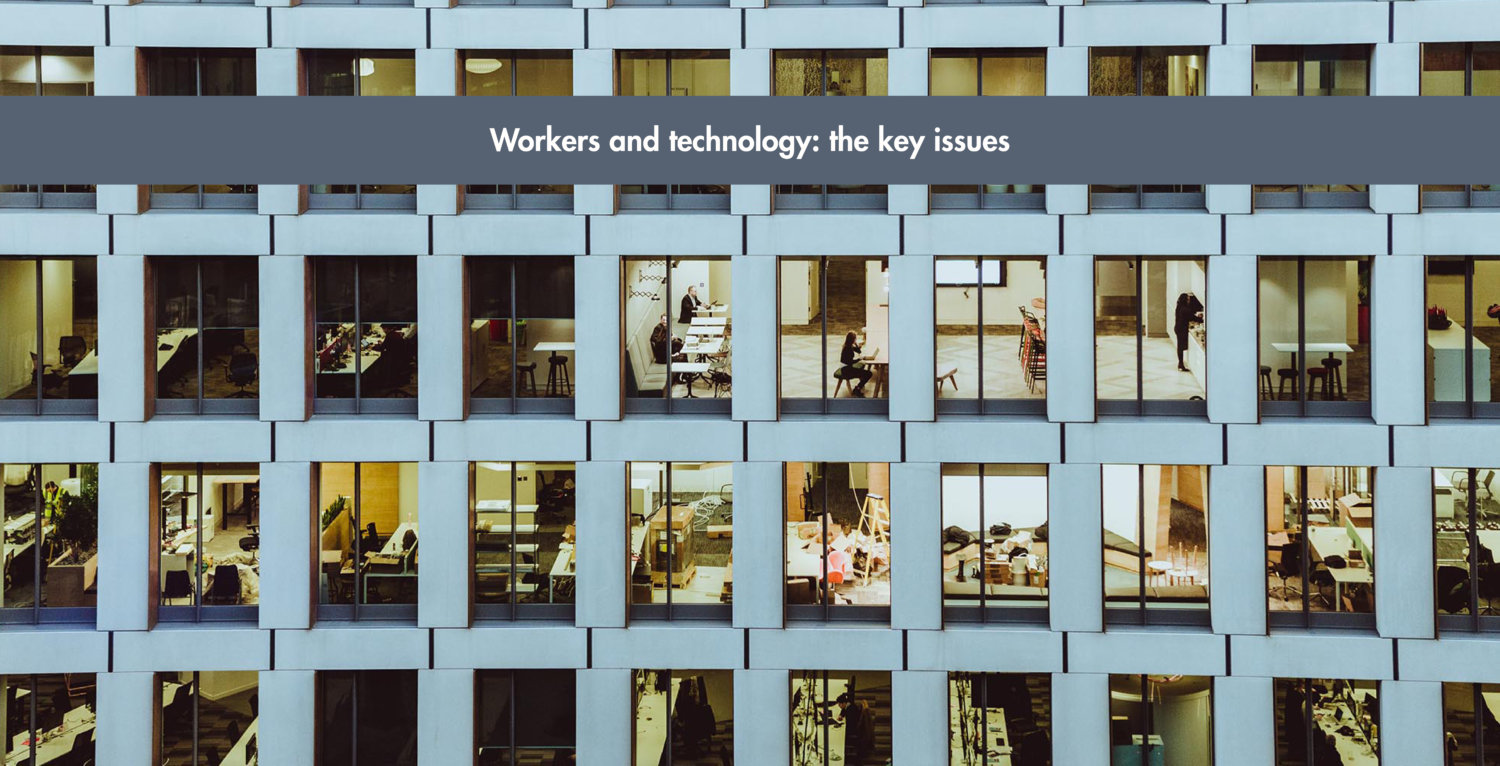Making tech work
As technology causes significant disruption in the world of work, Tom Watson MP asks how do we protect and promote autonomy in the age of automation?
It’s nearly three years ago now since I set up an independent Commission on the Future of Work with my colleague, Helen Mountfield QC.
We saw that technology like automation, AI, and machine learning was causing significant disruption in the world of work, destroying some jobs, hollowing out others, and shifting the balance of power, wealth and control.
This led us to the central question: how do we protect and promote autonomy in the age of automation?
We need a bold vision grounded in the understanding that work is more than merely a means of production. Good work gives us purpose and the means to shape our own lives, binding us together as a society.
The Institute for the Future of Work’s Good Work Charter puts fair pay, fair conditions, dignity and autonomy at the centre of the idea of good work. That’s Labour’s vision too. But the sad truth is that for a lot of people it’s a long way off from today’s reality.
I’ve been reading Professor Shoshana Zuboff’s work on surveillance capitalism, which sets out how our digital market is dominated by a small number of data monopolies – Facebook, Google, Amazon and the like. In an information age where knowledge is power, Silicon Valley’s tech giants know every detail about our lives: where we go and who we speak to, our beliefs and our hopes. They even know – to a terrifying degree of accuracy – what we will do in the future and then they monetise that data to make billions through targeted advertising.
This model is having a huge impact on workers. Just look at the number of jobs: General Motors employed more people at the worst moments of the Great Depression than either Google or Facebook employs at the very height of their power. We’re likely to lose around 175,000 high street jobs and 23,000 shops in the next year alone, largely due to pressure from online giants like Amazon who have the advantage of knowing our interests, whims and entire purchase history.
And the quality of good jobs is declining too. Some workers are feeling stripped of their worth. Four in 10 retail workers surveyed by USDAW said they were less fulfilled in their work than 5 years ago and the same proportion were concerned that technology would displace their jobs. Workers at the sharp end of surveillance capitalism told us ‘we just feel like numbers now.’
But employees in the insurgent industry aren’t necessarily faring any better. An Amazon factory employee said: “I’d say they treat you like robots, and after a while, because of the brain numbing work, you become a little bit of a robot as well.”
In the last industrial revolution coal face and heavy industrial jobs broke workers’ lungs and limbs. Today surveillance capitalism is breaking people’s spirits. Polling shows that a fifth of workers are more pessimistic about their career prospects than a year ago. Of these, 60% say it would be difficult to find a new job if they lost their job completely with a third believing they would have to take a less senior job in this event.
Working people are losing hope but it needn’t be this way. Labour will rebalance the tech market, adding safeguards to encourage the development of technology that works for us, not against us.
To do this, we need up-to-date competition laws and we are looking at how the creation of good work can be made an essential part of the public interest test for tech mergers.
Secondly, the people most likely to be adversely affected by advances like automation should be at the heart of government policy. Labour will place trade union representatives on government advisory boards including the AI council and the Centre for Data Ethics and Innovation.
Thirdly, we need to amplify the voices of the workers who create these brilliant innovations.
Research from Doteveryone found that one in four UK tech workers have witnessed decisions they thought would have a negative impact on society and that nearly a fifth of those consequently left their jobs. Conscientious objection is one form of protest but it shouldn’t be workers’ only option. We will support tech workers to unionise so that their collective views on what they produce and how it’s used are heard at every level.
Technology poses a big challenge and a great opportunity to the world of work. I’d like to hear the ideas of policy thinkers, of industry, experts and campaigners about what more we can do. Because if we want to achieve the vision of the future of good work, we need technology that serves our whole society not just the agendas of Silicon Valley.

